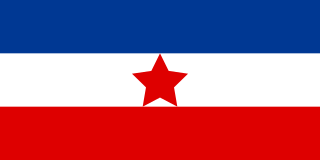Liberation Army may refer to: liberation armies
National Liberation Army is the name of:

The Viet Cong was an epithet to call the communist movement and united front organization in South Vietnam, Laos and Cambodia. Formally organized as and led by the National Liberation Front of South Vietnam, it fought under the direction of North Vietnam against the South Vietnamese and United States governments during the Vietnam War. The organization had both guerrilla and regular army units, as well as a network of cadres who organized and mobilized peasants in the territory the Viet Cong controlled. During the war, communist fighters and some anti-war activists claimed that the Viet Cong was an insurgency indigenous to the South, while the U.S. and South Vietnamese governments portrayed the group as a tool of North Vietnam. It was later conceded by the modern Vietnamese communist leadership that the movement was actually under the North Vietnamese political and military leadership, aiming to unify Vietnam under a single banner.
National Liberation Front may refer to:
Karposh may refer to:
I Corps, 1st Corps, or First Corps may refer to:
The Anti-Fascist Council for the National Liberation of Yugoslavia, commonly abbreviated as the AVNOJ, was a deliberative and legislative body that was established in Bihać, Yugoslavia, in November 1942. It was established by Josip Broz Tito, the leader of the Yugoslav Partisans, an armed resistance movement led by the Communist Party of Yugoslavia to resist the Axis occupation of the country during World War II.

The Yugoslav Partisans, or the National Liberation Army, officially the National Liberation Army and Partisan Detachments of Yugoslavia, was the communist-led anti-fascist resistance to the Axis powers in occupied Yugoslavia during World War II. Led by Josip Broz Tito, the Partisans are considered to be Europe's most effective anti-Axis resistance movement during World War II.
The People's Liberation Army is the armed forces of the People's Republic of China. It may also refer to:
People's Army/Armed Forces is/was the title of the armed forces or army of several countries:
Macedonian NLA may refer to:
The Anti-fascist Assembly for the National Liberation of Macedonia was the supreme legislative and executive people's representative body of the communist Macedonian state from August 1944 until the end of World War II. The body was set up by the Macedonian Partisans during the final stages of the World War II in Yugoslav Macedonia. That occurred clandestinely in August 1944, in the Bulgarian occupation zone of Yugoslavia. Simultaneously another state was declared by pro-Nazi Germany Macedonian right-wing nationalists.

World War II in the Kingdom of Yugoslavia began on 6 April 1941, when the country was invaded and swiftly conquered by Axis forces and partitioned among Germany, Italy, Hungary, Bulgaria and their client regimes. Shortly after Germany attacked the USSR on 22 June 1941, the communist-led republican Yugoslav Partisans, on orders from Moscow, launched a guerrilla liberation war fighting against the Axis forces and their locally established puppet regimes, including the Axis-allied Independent State of Croatia (NDH) and the Government of National Salvation in the German-occupied territory of Serbia. This was dubbed the National Liberation War and Socialist Revolution in post-war Yugoslav communist historiography. Simultaneously, a multi-side civil war was waged between the Yugoslav communist Partisans, the Serbian royalist Chetniks, the Axis-allied Croatian Ustaše and Home Guard, Serbian Volunteer Corps and State Guard, Slovene Home Guard, as well as Nazi-allied Russian Protective Corps troops.
People's Liberation War may refer to:

The Macedonian Partisans, officially the National Liberation Army and Partisan Detachments of Macedonia, was a communist and anti-fascist resistance movement formed in occupied Yugoslavia which was active in World War II in Yugoslav Macedonia. Units of the army were formed by Macedonians within the framework of the Yugoslav Partisans as well as other communist resistance organisations operating in Macedonia at the time and were led by the General Staff of the National Liberation Army and Partisan Detachments of Macedonia, headed by Mihajlo Apostolski.

World War II in Yugoslav Macedonia started with the Axis invasion of Yugoslavia in April 1941. Under the pressure of the Yugoslav Partisan movement, part of the Macedonian communists began in October 1941 a political and military campaign to resist the occupation of Vardar Macedonia. Officially, the area was called then Vardar Banovina, because the very name Macedonia was prohibited in the Kingdom of Yugoslavia. It was occupied mostly by Bulgarian, but also by German, Italian, and Albanian forces.

The military history of North Macedonia spans from the beginning of World War II until the conflict with ethnic Albanian militants, such as the 2001 Macedonia conflict. The country also contributed troops in the War on Terror.
Yugoslav Army, Army of Yugoslavia, or Military of Yugoslavia may refer to:
General Political Department (GPD) may refer to:

The Croatian Partisans, officially the National Liberation Movement in Croatia, were part of the anti-fascist National Liberational Movement in the Axis-occupied Yugoslavia which was the most effective anti-Nazi resistance movement. It was led by Yugoslav revolutionary communists during the World War II. NOP was under the leadership of the League of Communists of Yugoslavia (KPJ) and supported by many others, with Croatian Peasant Party members contributing to it significantly. NOP units were able to temporarily or permanently liberate large parts of Croatia from occupying forces. Based on the NOP, the Federal Republic of Croatia was founded as a constituent of the Democratic Federal Yugoslavia. British Prime Minister Winston Churchill referred to the movement as "the Croatian miracle".